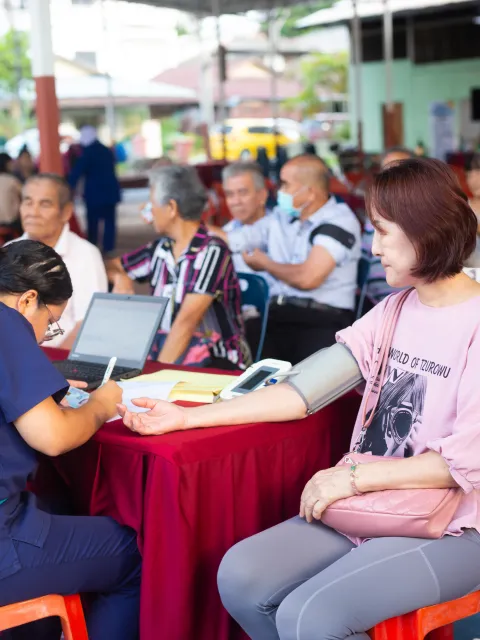Escaping the cancer you can’t escape

I’ve heard a lot of voices in my career as both a breast oncology nurse and health and policy professional. I’ve always been driven by the need to listen to those stories and experiences, and to use the stories I’ve been entrusted with to advocate for change.
Just last night, I was hearing another memorable story from a brave woman in search of meaning and support. Brenda lives in regional Australia, and she has metastatic breast cancer, which she will live with and cope with for the rest of her life. I was asking her why she felt the need to drive nearly 550 miles to attend three of our Breast Cancer Network Australia (BCNA) information sessions on metastatic disease in several different Australian states. Each session is the same as the last, except for one thing – the women who gather there.
Brenda said that she did it to feel a personal connection with other women who might be sharing her experience, and surviving, and doing their best to live a normal, happy life. ‘I’m not alone, so it’s OK,’ she said.
Metastatic breast cancer is a tough disease, requiring great courage and resilience from those who live with it. Yet their stories are still not often heard. They have to get together and talk to each other just to hear their disease acknowledged.
Acknowledging breast cancer
Around the world, October is Breast Cancer Awareness Month. Thousands of organisations will highlight the importance of breast awareness, community education and funding for a cure, covering the world with a sea of pink. It’s a campaign that will resonate with so many who have been touched by breast cancer, through either a personal diagnosis or someone they love or know. Maybe a work colleague, maybe a neighbor, or another mum dropping off their kids at school.
Much of the focus will be on the statistics around the number of people diagnosed every year. But where do those living with the incurable form of breast cancer fit, within all the pink? Where are the statistics for metastatic breast cancer?
We know that, each and every year, over 3000 Australian women and some men will die of this disease. But we have no knowledge of the thousands of others who live every day with this illness. For them, this means lifelong treatment and all of the associated hope and hurdles that go with it.
Karen is another woman who said it so well: "When you are diagnosed with metastatic breast cancer, you think you are going to die in a matter of months but, in my case, you can live with cancer. At first, you are terrified that you are going to die, but you snap into survival mode and keep going. I’m into year 10!"
On living with metastatic breast cancer
What does life with metastatic breast cancer for ten years look like? It looks like endless questions, and living with uncertainty. How much time will be ‘well’ time, and how much time will be filled with medical crises, disease progressions and new treatments? Where will I get the support I need to get through this – physical, emotional, social, financial? How will I navigate the minefield, to find the ‘new normal’, when the constant is the disease and it’s deemed to be incurable?
Awareness days and months, with their special colours and public participation, are a wonderful way of reminding people about cancer, and providing a simple way to help. But we have to move beyond goodwill and donations to use these campaigns as an opportunity to advocate strongly for those who fall through the gaps, and to help them find their place in the conversation.
Participating for real impact
October should be a month to influence decision makers, to force them to reflect on the personal impact that a new drug listing might have for one woman and her family. Instead of asking us how many thousands will benefit from that drug, what cost to the community will it incur, how will it improve overall survival, we need to tell them the story of what a new drug could mean for a woman living with metastatic breast cancer. To help decision-makers understand the incredible importance of the treatment break it might provide, imagine: a break from neuropathy, from nausea, from hair loss. Less time in the hospital, more time with family, time to work and reduce financial stress. To get on with life.
People with metastatic breast cancer tell us again and again that they don’t want their lives to be dictated by their illness.
They want to remain strong contributors, to live meaningful lives no matter what lies ahead. October should be the month that we listen to their voices, and tell their story for them. I’m looking forward to doing just that – it’s a great month to be their advocate.
Last update
Monday 27 February 2023Share this page


